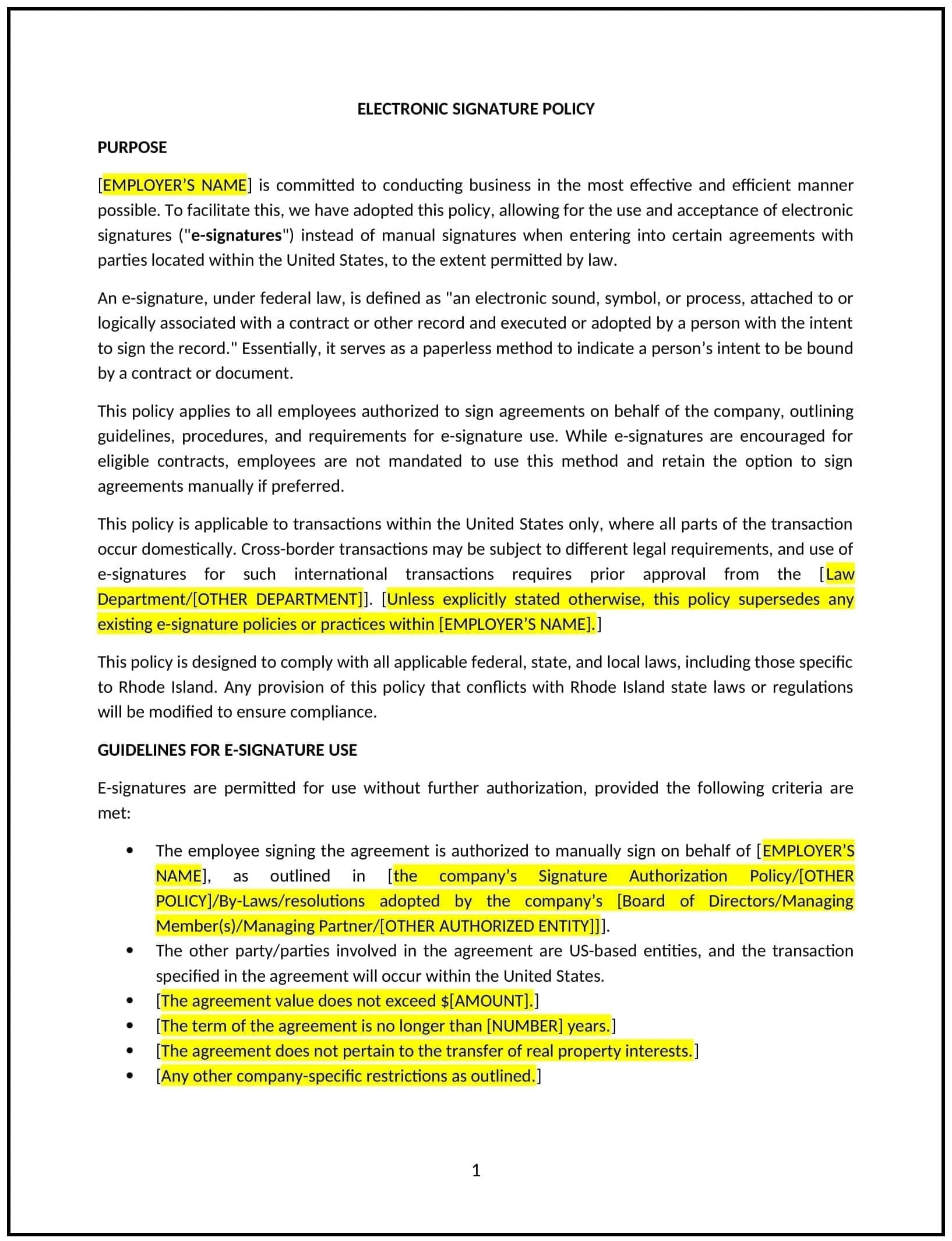Electronic signature policy (Rhode Island): Free template
Got contracts to review? While you're here for policies, let Cobrief make contract review effortless—start your free review now.

Customize this template for free
Electronic signature policy (Rhode Island)
This electronic signature policy is designed to help Rhode Island businesses establish guidelines for using electronic signatures on documents. It outlines procedures for creating, storing, and verifying electronic signatures.
By adopting this policy, businesses can streamline processes, reduce paperwork, and align with legal standards for electronic signatures.
How to use this electronic signature policy (Rhode Island)
- Define electronic signatures: Explain what constitutes an electronic signature and its legal validity.
- Establish procedures: Outline steps for creating and using electronic signatures, including authentication methods.
- Address storage: Specify how electronically signed documents should be stored and maintained.
- Train employees: Educate staff on the policy and its importance.
- Review and update: Assess the policy annually to ensure it aligns with evolving business needs and legal standards.
Benefits of using this electronic signature policy (Rhode Island)
This policy offers several advantages for Rhode Island businesses:
- Streamlines processes: Reduces the need for physical paperwork and speeds up document signing.
- Ensures compliance: Aligns with Rhode Island’s laws and regulations for electronic signatures.
- Enhances efficiency: Simplifies workflows and reduces administrative burdens.
- Builds trust: Demonstrates to clients and stakeholders that the business uses secure and legally valid methods.
- Aligns with best practices: Supports adherence to electronic signature standards.
Tips for using this electronic signature policy (Rhode Island)
- Communicate the policy: Share the policy with employees and include it in training programs.
- Provide training: Educate employees on how to create and use electronic signatures.
- Monitor compliance: Regularly review electronically signed documents to ensure adherence to the policy.
- Address issues promptly: Take corrective action if electronic signatures are mishandled.
- Update regularly: Assess the policy annually to ensure it aligns with evolving business needs and legal standards.